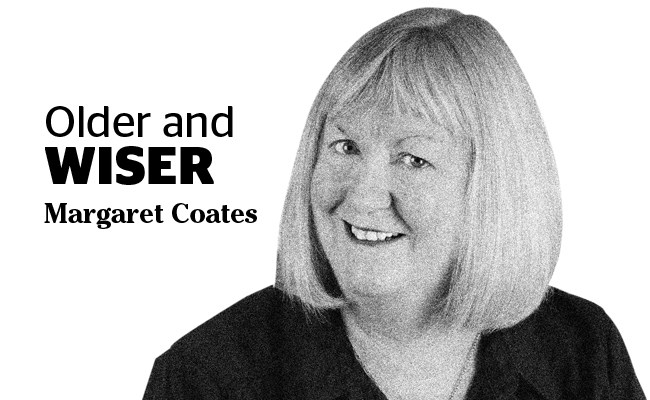You may have developed good nutritional habits over your life, but as you age are you letting some of those habits slip?
According to the 2013 Statistics Canada Canadian Community Health Survey, 34 per cent of seniors living in a community in Canada are at nutritional risk. Risk factors include depression, low social support, low income, living alone, poor oral health, disability and being female.
Good nutrition, no matter what age you are, is essential for good health.
Good health lowers your risk factors for becoming ill and going to hospital. The publication HealthLink BC notes: “Every day we make choices about the food we eat and our lifestyles. We can make choices for ourselves and our families that make a real difference to our ability to remain healthy and active now, and enjoy life to its fullest in the future. Healthy eating promotes and supports social, physical, and mental well-being for everyone, at all ages and stages of life.”
Getting good nutrition may be a challenge for some of us. Fortunately, there are plenty of resources to help us with our nutrition needs.
The dietitians services at HealthLink BC recommend several steps to good nutrition, such as meal planning, shopping regularly for healthy choices, finding creative ideas to make food enjoyable and easier to cook, keeping your food safe, picking healthy choices when you eat out and so on.
Check out their website for more information at healthlinkbc.ca/dietitian-services, or call HealthLink BC at 8-1-1 to speak to a registered dietitian free of charge from 9 a.m. to 5 p.m. Monday to Friday. Copies of the Healthy Eating for Seniors Handbook are also available to order free of charge by dialing 8-1-1.
Being isolated or living alone are risk factors for staying nutritionally healthy.
The Canadian Community Health Survey found that those living alone were significantly more likely to be at nutrition risk (49 per cent) compared to those living with others (28 per cent).
A way to get around the isolation factor is for seniors to get out to centres that offer meal programs. Seniors on the North Shore can find daily meal programs at Silver Harbour Seniors’ Activity Centre and West Vancouver Seniors’ Activity Centre.
One participant at Silver Harbour who lives alone depends on the meal program for lunch and dinner (the meal is so generous he takes leftovers home) and for social contacts.
He says: “I knew about Silver Harbour for many years but didn’t start going till after my second heart operation. I live nearby and can come easily. It’s not just the food but also the people you can chat with about many things. They have windows on the world that I would never have. I trade stories and information with others who come to the food services.”
Eating meals in a communal setting may not be for you, so if you just want to stay at home and don’t want to cook but want to have a nutritional hot meal North Shore Meals on Wheels can be an enjoyable option.
The group says on its website that “Our meals are prepared by chefs who have your nutritional needs in mind. The food is prepared by a local caterer using only fresh ingredients.”
They can be reached at 604-922-3414. For other food service choices check out the new 2017 Seniors Directory put together by the North Shore Community Resources Society and published by the North Shore News.
It can be found at your favourite seniors centre, community organization or online at issuu.com/nsnfeatures/docs/seniors_directory_2017.
Margaret Coates is the co-ordinator of Lionsview Seniors’ Planning Society. She has lived on the North Shore for 47 years and has worked with and for seniors for 20 of those. Ideas for future columns are welcome. [email protected] Info: lionsviewseniorsplanning.com.



